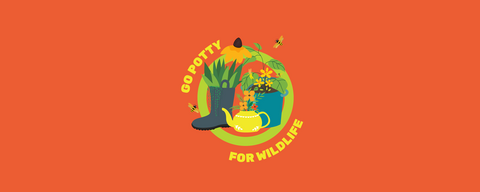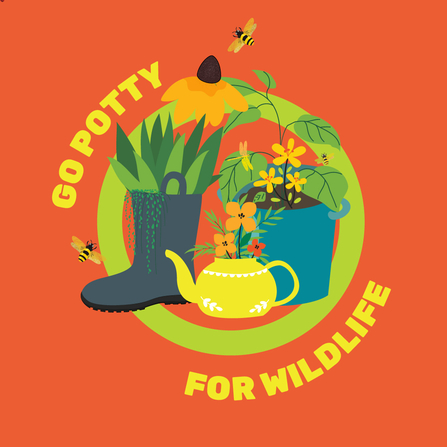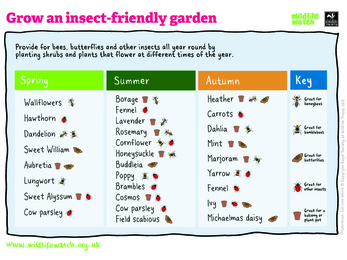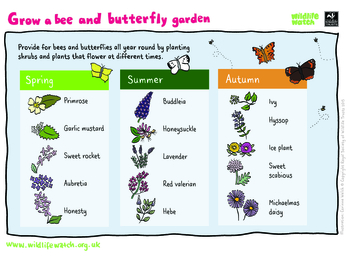
Help the wildlife on your doorstep, whatever space you have and Go Potty for wildlife!
Pots and containers with plants are a great way of to provide food and shelter to insects and pollinators in areas where there might not be any other wildlife such a driveway or outside the front door. They are also perfect for small gardens, patios or spaces like window ledges and balconies.
You don’t just have to plant for wildlife, why not try growing some grub for you too. Herbs, in particular, make good container plants and attract lots of wildlife, as well as being useful in the kitchen. A compostable coffee cup is the perfect size to grow a single radish. Get creative! What else can you repurpose?
Download out easy step-by-step guide
What do I need?
An upcycled pot, the more creative the better. Why not use an old pair of welly boots, a cracked teapot or even find an old tyre and use it as a container. Just one pot or several - it is up to you! Just make sure to use peat free compost.
You can use seeds or bulbs, take a clipping from a neighbour, or buy plants and flowers, just don’t forget to make sure they are pesticide free to encourage bees and insects.
When is the best time to do it?
In Spring try planting summer flowering bulbs or tubers for summer, such as dahlias and lilies. If you've missed early spring, you can always pick up some flowers or veggies further along in their life from your local garden centre. You might not see the results straight away, but if you're patient, September is a great time to plant some seeds ready for the following Spring. October to November is great for planting spring bulbs, like daffodils and tulips. 🌷
Try and chose a selection of plants that grow at different times of year, such as winter heathers, which are a lifeline for bumblebees and solitary bees, which do not store food and emerge in mild spells in winter and early spring.
5 Simple Steps for Success
Step 1: Pick your pot. The more creative the better! We recommend something long lasting if you're gardening on a balcony, whereas items like compostable drink cups can go straight into your garden bed with veggie or flower seeds.
Step 2: Fill your pot with peat free compost.
Step 3: Chose your seeds, bulbs, or plants. This doesn't have to be expensive, gardeners love to share cuttings, and even left over seeds. Why not orchestrate a plant exchange amongst friends.
Step 4: Water them and watch them grow. Snap some photos to share with your friends.
Step 5: Tell your neighbours all about it!
Step 6: Let us know you participated; you can plot your contribution on our map.
Top tip: Don’t forget to buy pesticide free plants and flowers to encourage bees and insects or even better grow your own.
What to plant when?
You might not see the results straight away, but September is a great time to plant some seeds ready to see your hard work pay off with some beautiful blooms in Spring
The great thing about gardening, is that there is always something to be doing! Be it planting, or planning for planting, or having a clean out to find items to upcycle in your garden.
November to March is the time to plant bare-root, wildlife-friendly trees like hawthorn, alder buckthorn and pussy willow. Grow as hedging or plant as individual specimens to attract moths and other herbivores, which in turn will attract more birds, bats, hedgehogs and amphibians.
You can plant spring bulbs for next year, like nectar-rich bulbs such as crocus, snake’s head fritillary, alliums and grape hyacinths to feed next year’s hungry emerging bees. Find out how to make your garden bee-friendly in winter.
Winter is a great time to clean out your home. Find things that can per repurposed as a planting container and save a trip to the skip! When spring rolls around again, you'll be ready sow seeds for summer flowering plants.

Tell your neighbours all about it!
Joining in these local actions shows the community around you that you care about wildlife, the pots outside your front door show neighbours that you support a #wilderstaffordshire and could spark a conversation that gets your friends and family involved too.








